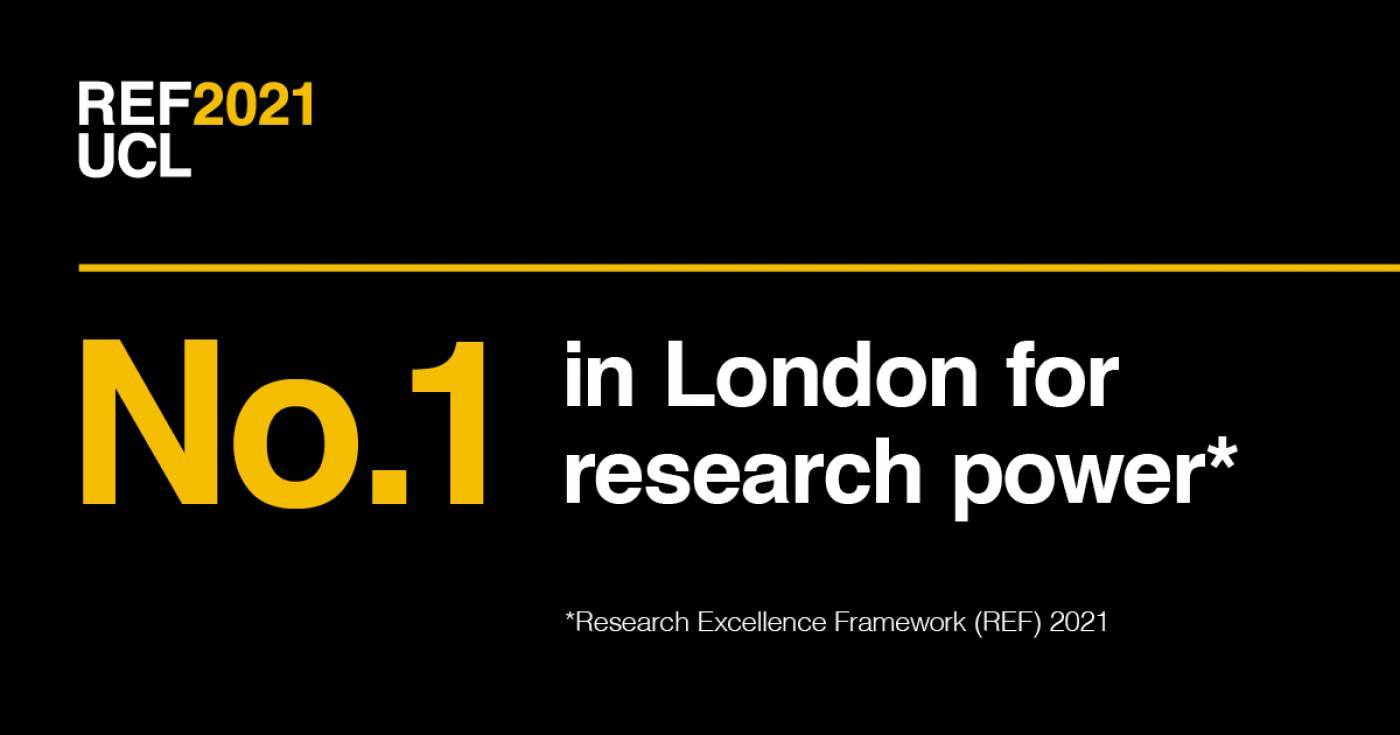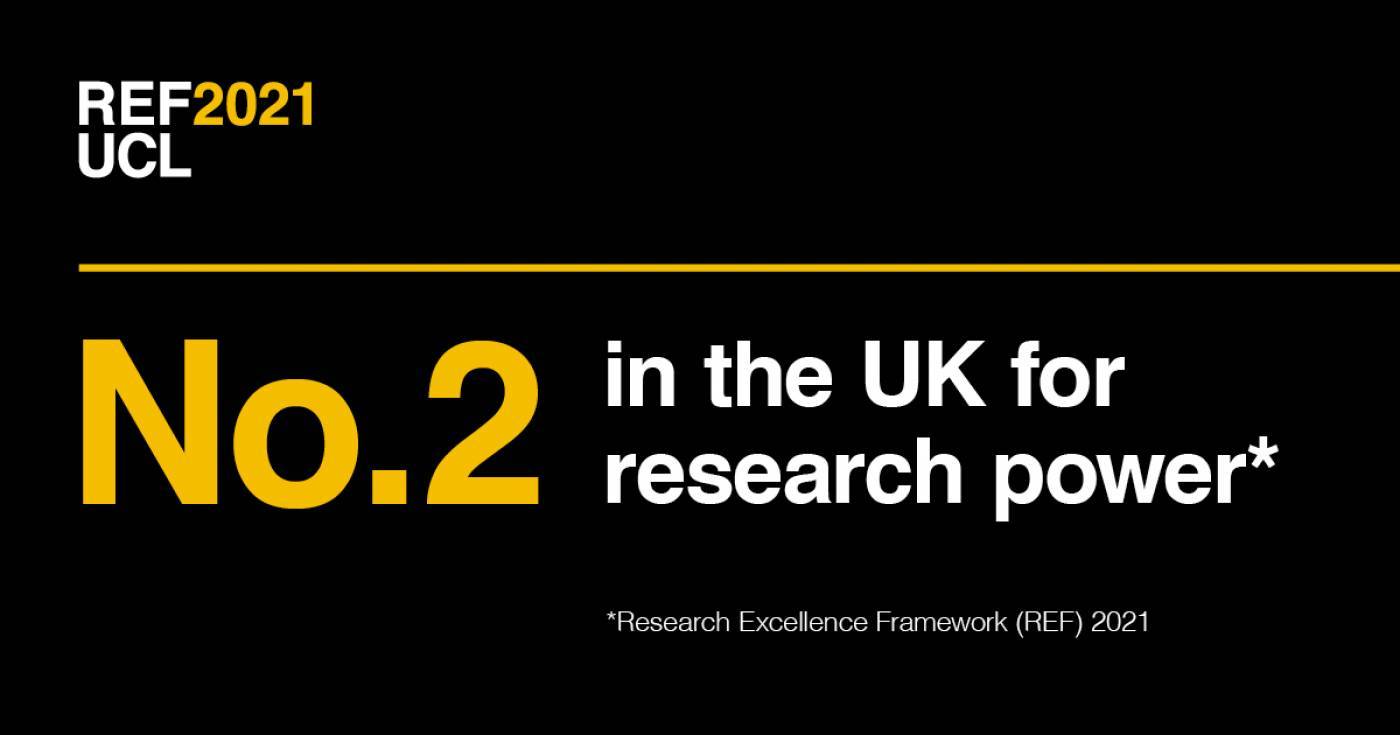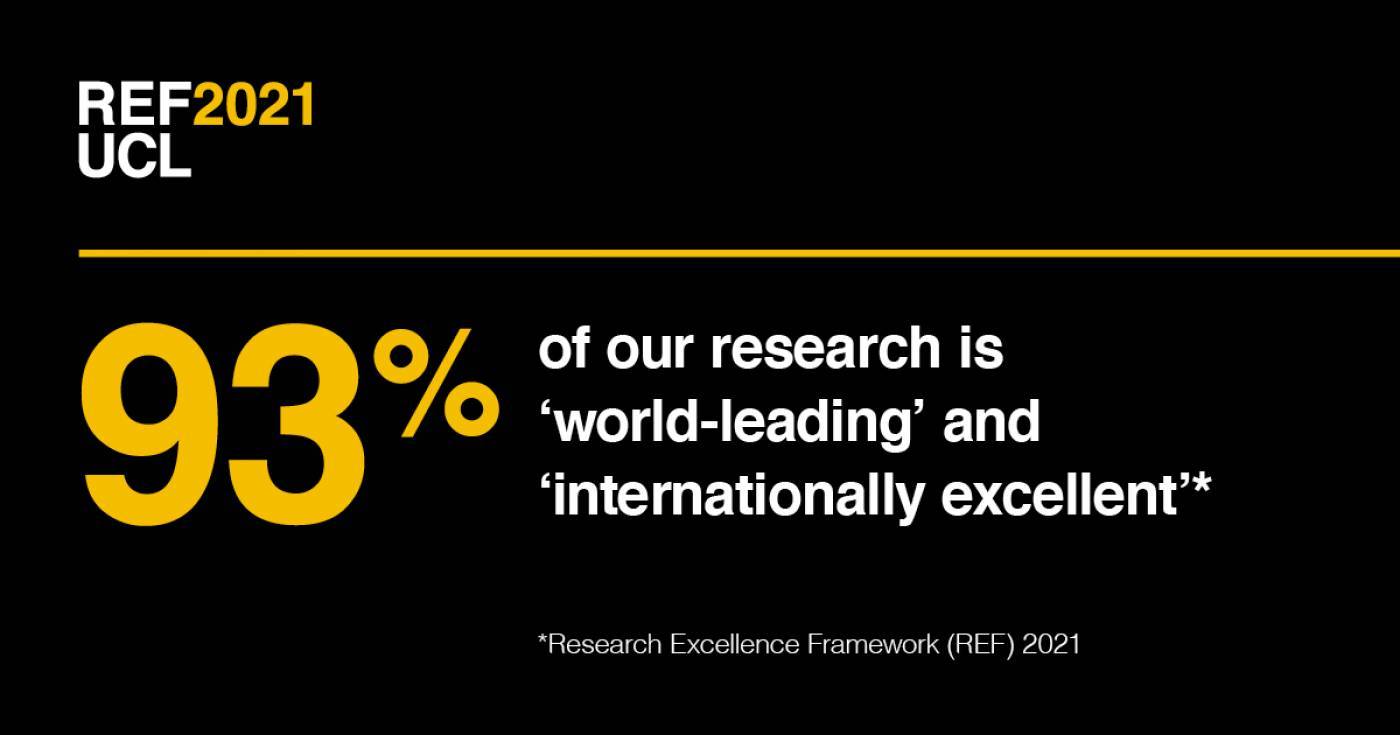Research
World leading in research, scholarship and enterprise across medicine, health and education, UCL is London’s Global University. An established world top 10 university founded in 1826, we boast comprehensive multidisciplinary and cross faculty excellence to provide colour and context to the new focus on global health leadership. From epidemiology to economics to engineering, many themes and disciplines are relevant to our aim to reconceptualise the future of healthcare management.
We are recognised for our disruptive, critical thinking and widespread influence for the long-term benefit of humanity. UCL cherishes curiosity and imagination and believes that the expansion of knowledge and scholarship is a fundamental element in the development and improvement of society. We look to generate practical impact, not just increase our global footprint.
Research with us
UCL's strategic partnerships
UCL cannot deliver global change alone therefore we are more collaborative than any other major global health university. Our strategic partnerships bring together complementary strengths and deepen the impact of our cross disciplinary education and research. UCL has partnerships with industry, healthcare providers, non-governmental organisations (NGOs) and other centres of academic excellence across the world. We are a founding partner in one of the first academic health science partnerships, UCL Partners, working alongside 23 NHS hospital trusts, 20 clinical commissioning groups and nine other universities, to co-create healthcare solutions with access to a highly diverse patient population of over six million people registered at the partner hospitals.
Our research and partnership working also enriches global scholarship and delivers opportunities for a transformative education with a reputation for innovation, reach and legacy. We are committed to inclusivity and participation to reflect our global ambitions. The London School of Medicine for Women was established in 1874 and was the first medical school in Britain to train women as doctors, merging with UCL in 1998 to form a new school at UCL. Today, the Athena Swan accreditation for gender equality has been achieved across our broad scientific community at UCL.
Our evolving UCL GBSH research themes
- Financial, operational and systems improvements in healthcare
Rising costs, inefficient management, demographic stresses and complex new technologies – not to mention the stresses of the interface between private and public enterprises – all pose huge challenges and opportunities for established and emerging healthcare systems. This research theme represents a crucial area of enquiry in healthcare management today. Through this theme, our interdisciplinary staff investigate various models and theories for developing operational strategies, which support organisational learning for continued improvement and value creation.
Our aim is to develop systems approaches that embed process improvements into healthcare management behaviours. Contributing to cutting edge research, work from this research theme is also explored through teaching and training in our MBA Health and Global Healthcare Management MSc programmes.
- Consumerisation of health and healthcare through digitalisation
There is a current trend of patients (consumers) exercising more engagement over their medical and wellness care, often enabled by technology. To address this, many companies are exploring their roles in the evolving health economy, including those in retail, technology and other related sectors. In particular, they are looking to address consumer and patient needs to achieve better health outcomes. The consumerisation of healthcare (CoH) research theme covers the study, teaching and further research of this trend. Exploring this topic with various partners, our researchers are addressing a number of important questions around the challenges and opportunities of this evolving health ecosystem.
These include whether health technology encourages behaviour change, if wearable technology increases physical activity and healthier lifestyles, how the use of digital technology changes across demographic groups and cultures, and what personalised care means. We are also exploring what research needs to be undertaken concerning user behaviours, before championing the constructive digitalisation of the health and social care system. Work from this research theme is also addressed through our Digital Health and Entrepreneurship MSc.
- Future of health work and the healthcare workforce
As the demand for healthcare increases with demographic changes such as ageing populations, the demand for health professionals is growing. Yet the pipeline of health professionals will not be able to meet this rapidly increasing need. The World Medical Association reports that there are currently 76 countries with less than one physician per 1,000 people, while three billion people globally are without access to a health professional. Other research estimates that there will be a shortage of 15 million global healthcare workers by 2030.
A key area of enquiry in healthcare management today, our ambition through this research theme is to combine areas such as human resource management, health policy, change management and health innovations. Our goal is to find ways to expand and improve productivity in healthcare services in innovative ways, while exploring what the health workforce of the future might look like in terms of professional roles, training and education.
 Close
Close







